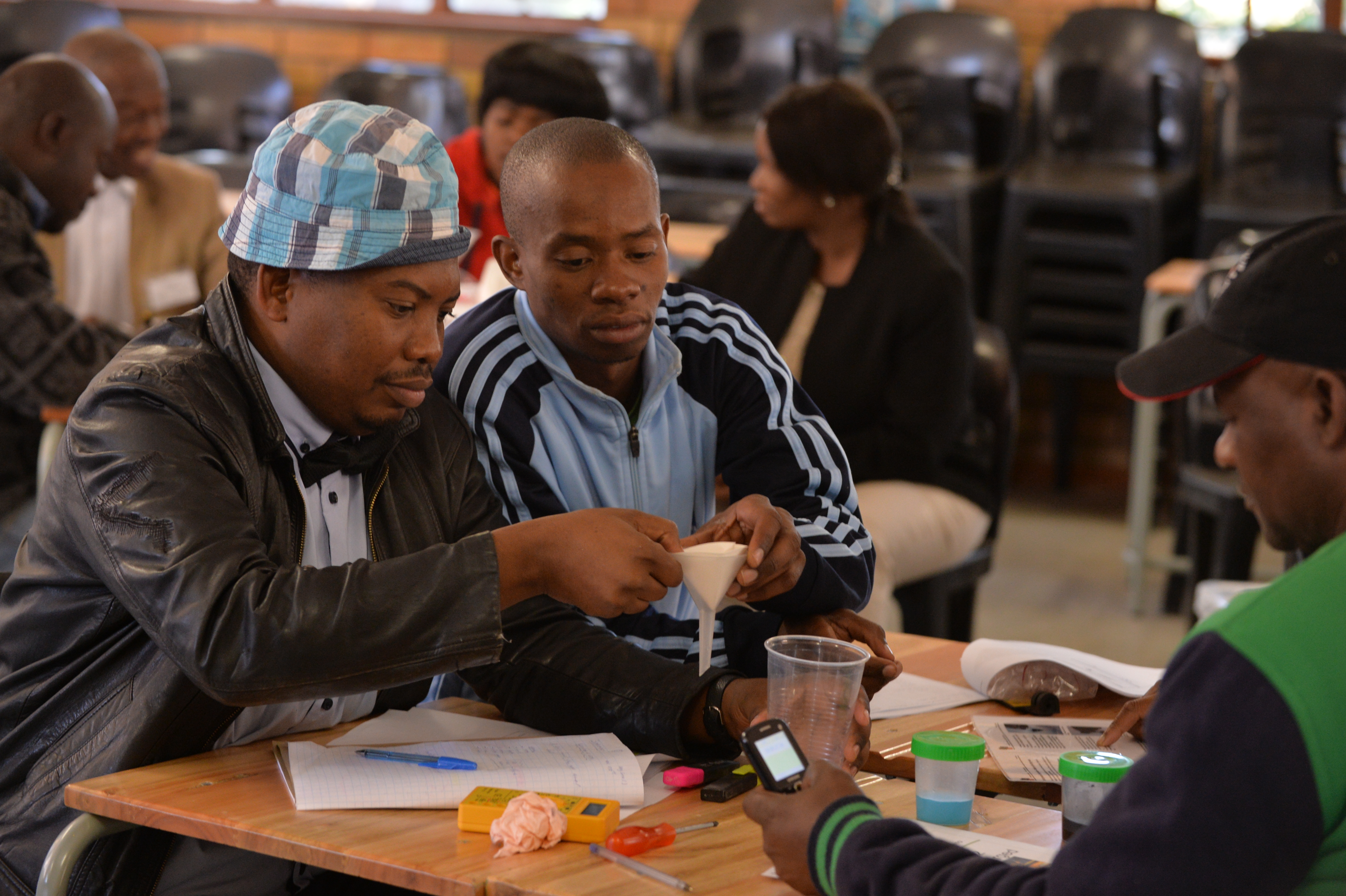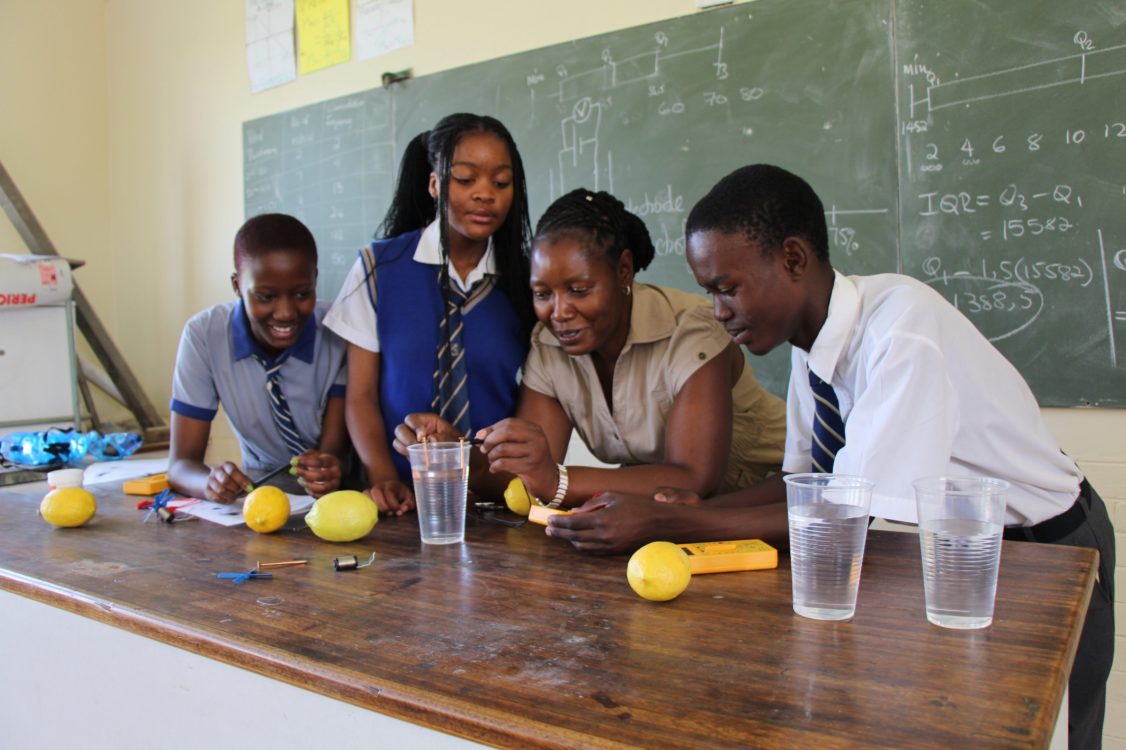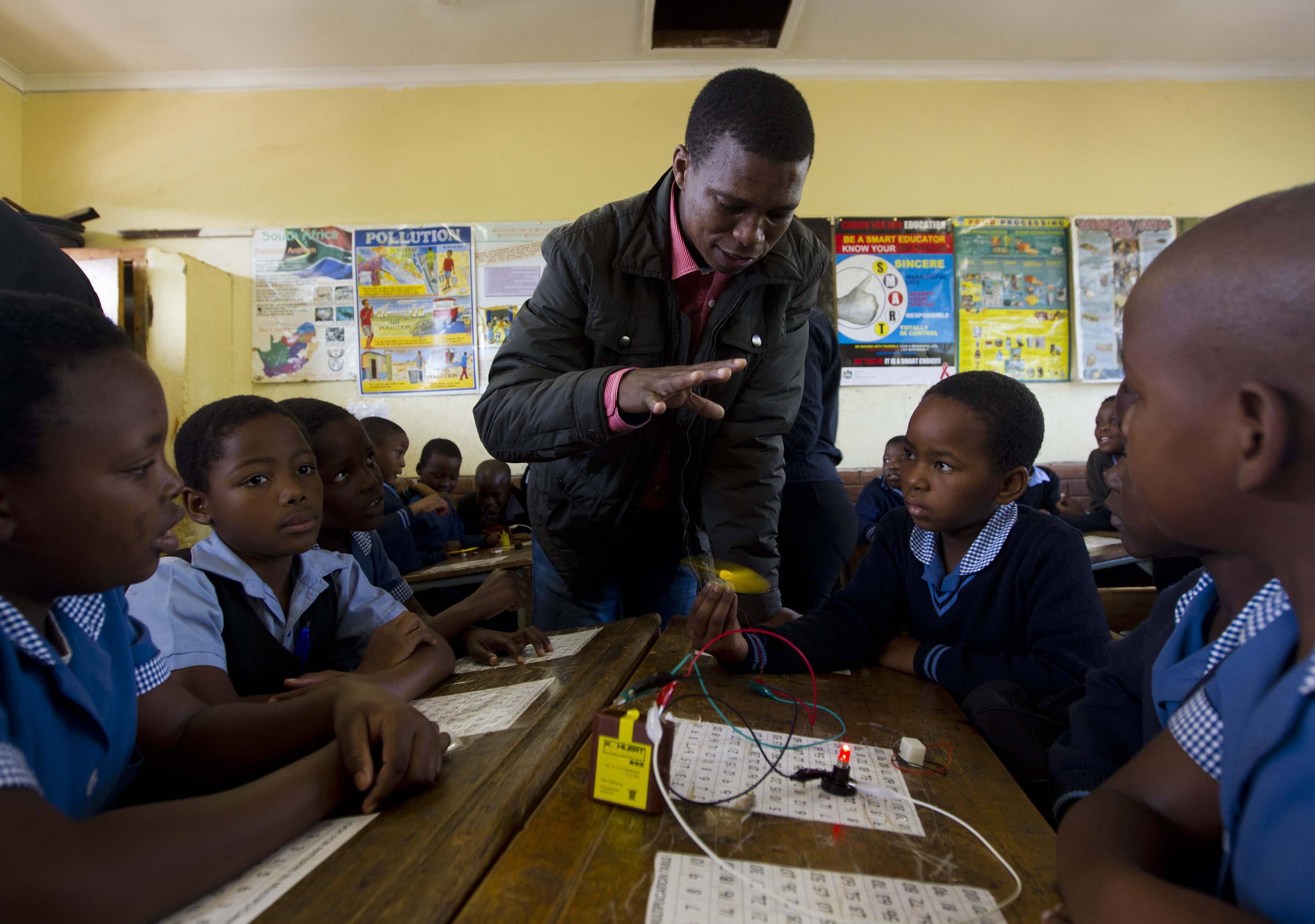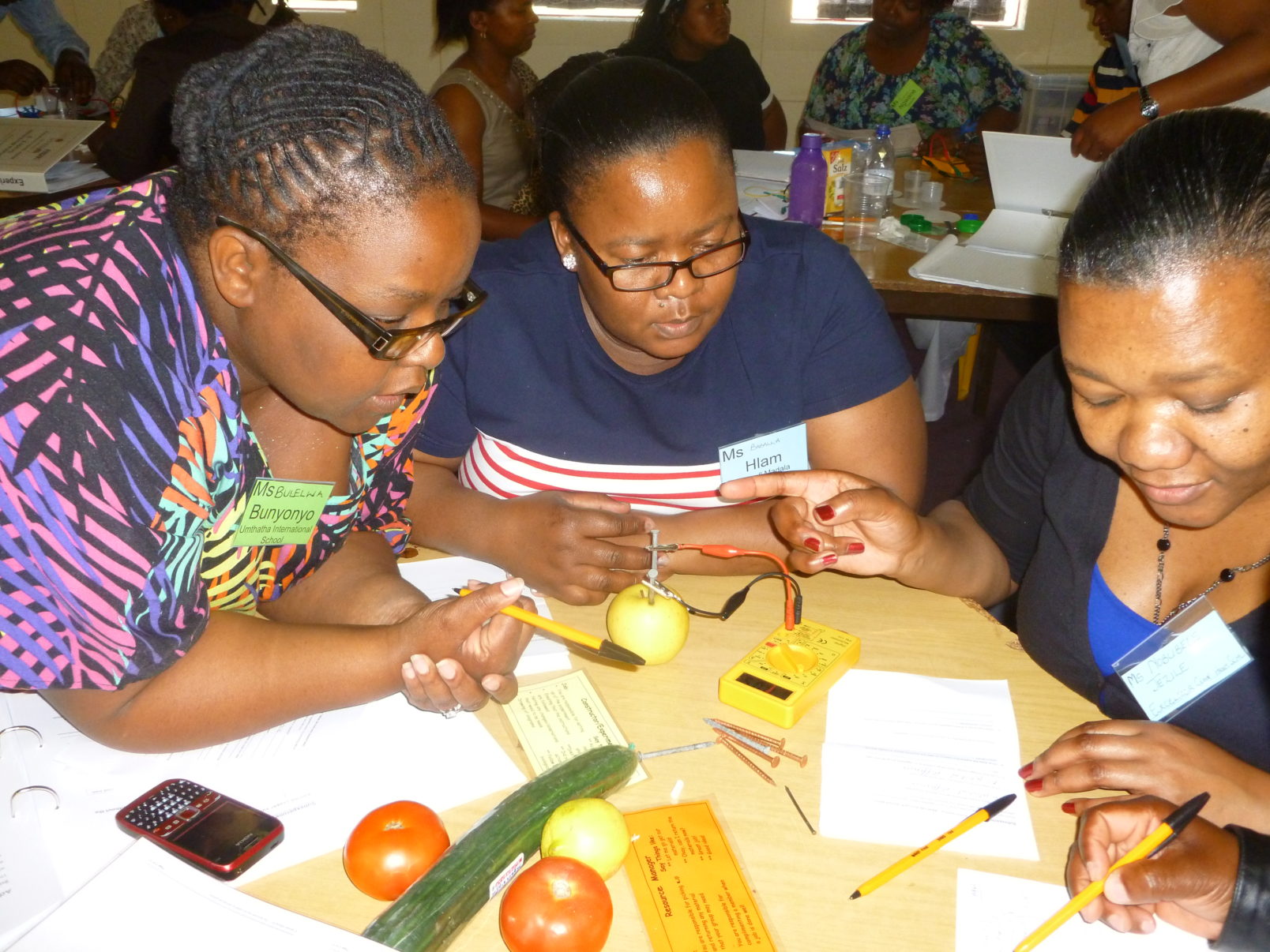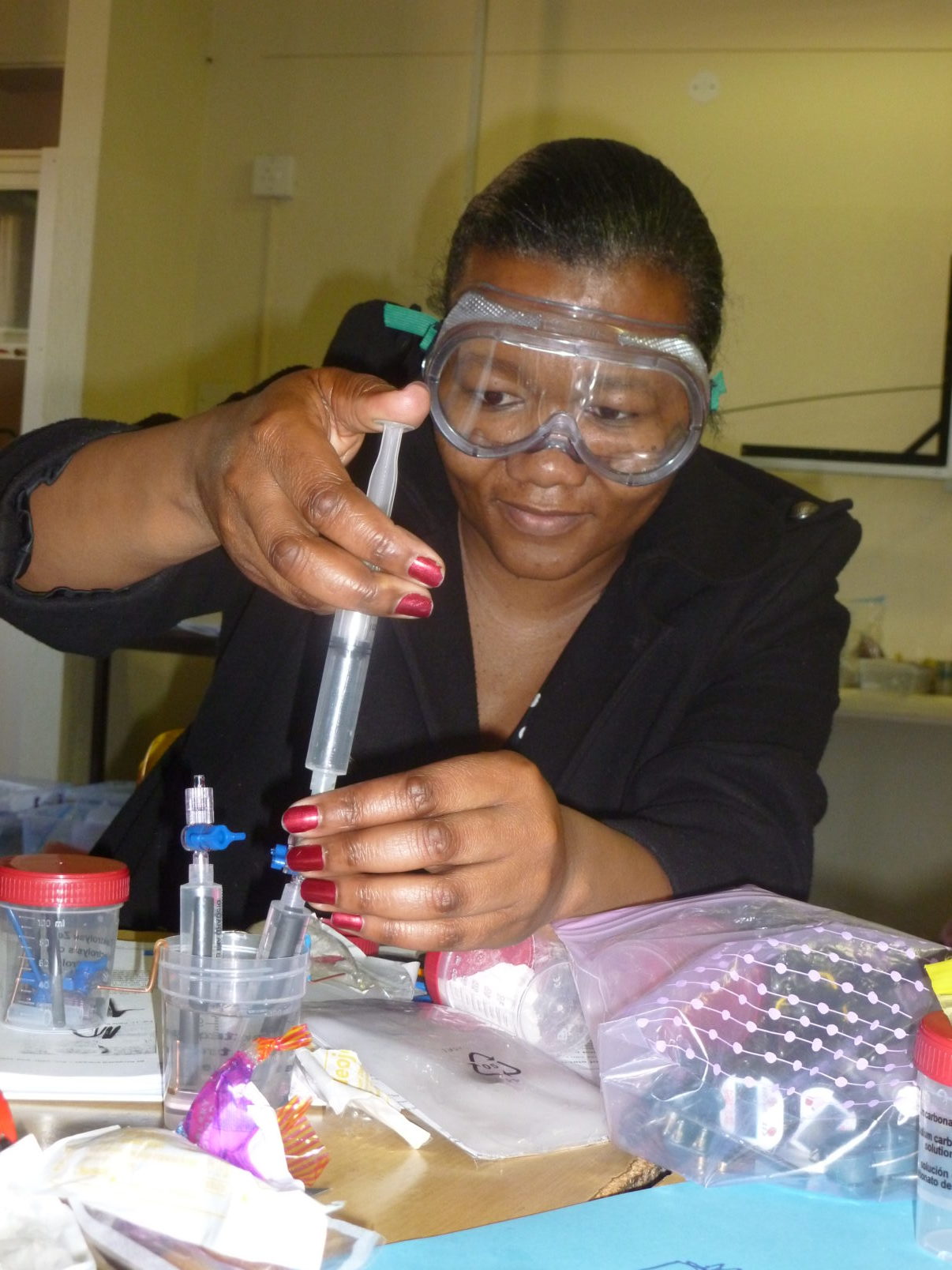More than just a box
Discovery-based science learning is fundamental and has a positive impact in South African classrooms. STEAM Foundation NPC inherited the Siemens Stiftung’s Experimento programme which was piloted over five years, in six Provinces of South Africa where over 200 kits were donated to schools in need, and has focused on ensuring the programme is made relevant to South African educators and learners.
Unlike other science offerings, which focus strongly on the product or science kit itself, the Experimento programme believes emphatically in teacher education. It trains educators not only on how to teach scientific concepts through hands-on experimentation but also embeds specific training as to how to implement co-operative learning even within the very large classes that can make up the South African teaching environment.
Although it is “more than just a box”, the box itself remains important, since “the way equipment is packaged, facilitates preparation for the lesson. One teacher explained: “The fact that you have a file so that you know what is in the box and how many, makes work effectively” (UCT SDU report, 2016).
As a result of five years of working with the Siemen Stiftung’s Experimento program, piloting over 200 kits in six Provinces of South Africa, STEAM Foundation NPC it is evident that STEAM Foundation NPC’s current focus needs to be is on the final modification and adaptation of Experimento to the South African educational environment in order to ensure success.
Over and above this, STEAM Foundation NPC is committed to ensuring as many quality kits as possible reach as many schools at a low-enough cost and high impact. A second key localization is that instead of a “laboratory in a box”, the program has been modularised, and it focus on core and critical concepts per grade per term, but each box contains the critical experiments per phase (for example, cover grades 6, 7 and 8).
Since 4 out of ever 5 High Schools in South Africa do not have a science laboratory scale is fundamentally important if we are to have an impact.
The World Economic Forum’s 2016 Global Competitiveness Report ranked South Africa last among 140 countries for maths and science – behind poorer countries such as Mozambique and Malawi. source
The 2015 TIMMS (Trends in International Maths and Science Study) indicate that: At grade nine level, the national average score for the country is 372 points for mathematics (38th out of 39 countries) and 358 points for science (last position). source
Generally the learners at independent schools performed very well followed by fee-paying public schools. The worst affected learners are those from no-fee public schools. source
South Africa came 39th out of 39 countries in a 2016 assessment that focused on the science performance of Grade 9s. source
It is further noted in a report by the IRR that only 18% of High Schools have a laboratory‚ and they are unevenly spread across provinces.
Radical interventions are needed now or South Africa will never become a global player in the fourth industrial revolution. The country must develop new teacher training methods and nurture a supportive environment for teachers. Innovative teaching tools should be introduced in the early phases to demystify maths and science for young pupils. If these subjects are more fun to learn, more pupils may be drawn to them as future career options. source
Although it is “more than just a box”, the box itself remains important, since “the way equipment is packaged, facilitates preparation for the lesson. One teacher explained: “ The fact that you have a file so that you know what is in the box and how many, makes work effectively” (UCT SDU report, 2016).



